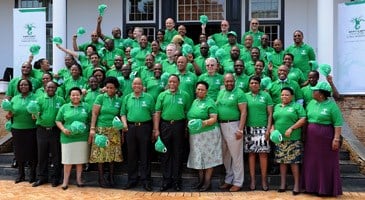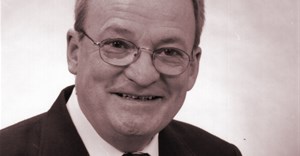
COP17 a defining moment - Zuma
African leaders also urged rich nations to take responsibility for polluting the atmosphere by channeling funds to developing countries as part of a long term solution to the problem of global warming.
President Jacob Zuma welcomed the more than 15 000 delegates who are gathering at the International Convention Centre with a message that the future of the world was in their hands.
For the next two weeks, they will need to find long-term climate cooperation and a subsequent post-2012 commitment period to the Kyoto Protocol.
With relative progress made during the COP16 in Mexico last year, the South African talks are seen as a turning point in implementing most of the crucial decisions made last December.
Accompanied by his deputy Kgalema Motlanthe and International Relations and Cooperation Minister Maite Nkoana-Mashabane, a calm looking Zuma told delegates that they had no choice but to find a lasting solution to the climate problem.
"Climate change can no longer be treated as just an environmental problem... It is a matter of life and death," he said.
He reiterated in his address how crucial it was for COP17 to ensure that the Cancun Agreements, which included the establishment of a Green Climate Fund, were implemented.
Africa's vulnerability did not only mean droughts and severe weather patterns but climate change will lead to poverty and cause serious food shortages for the continent.
"Severe drought in Somalia is causing serious problems and has displaced many. In the Americas, they are still battling to overcome the impacts five years after Hurricane Katrina.
"Given the urgency, parties should find solutions here in Durban. The expectation is that you must be able to work towards the outcome that is fair, balanced and credible."
Earlier delegates elected Nkoana-Mashabane as the new COP president for the next year taking over from Foreign Minister of Mexico Patricia Espinosa Castellano. She urged the gathering to use their "boldness and courage" to make Durban a decisive moment to address global warming. The world demanded action and a common solution for generations to come.
While expectations are low for a comprehensive and legally binding agreement, there is hope for practical progress on specific packages concerning mitigation, the Kyoto-Protocol, finance and adaptation.
Zuma said developing countries required a quick start for the fund through early initial capitalisation and activation of the Green Climate Fund.
As it was held in Africa, the conference also needed to prioritise adaptation to save lives in many Island nations.
"We also feel strongly that as an African conference, the COP 17 outcome must recognise that solving the climate problem cannot be separated from fighting poverty," he said.
He added that Africa had committed to reduce carbon emissions by 34% in 2020 and 42% in 2025.
South Africa had gone far to make sure this commitment was met. He cited the country's new growth path and the climate accord signed recently by the government and private sector.
UN Climate Executive Secretary Christiana Figueres said the unresolved political issues needed to be advanced in Durban if the world was to achieve its goals on climate change.
"It is my hope that through constructive negotiations we will address these issues... this may only be possible if the results are both fair and workable for all of us. There is a crucial need to build trust as part of the outcome of this conference."
The conference needed to reassure those vulnerable that tangible action was being sought for a safer future. Leaders also needed to assure the world that they were willing to take the next decisive step together.
Global warming has far-reaching consequences for the world with changes in weather patterns threatening millions of lives and expected to affect food security in developing countries.
South Africa is also itself a major contributor to the global climate change problem and is the largest carbon emitter on the continent. The burning of fossil fuels in South Africa, including the country's heavy reliance on coal-fired electricity, is the primary source of this carbon dioxide.
As in any other previous Conference of the Parties, the road to COP17 has not been easy. Negotiators hope to build upon progress made during the pre-conference period to push for a more inclusive deal that will take into consideration the interests of developing nations.
The G77 countries, which include South Africa, remain committed to their long-standing position of achieving a legally binding agreement. But given the on-going rivalry between developed and developing countries, many analysts say they are unlikely to achieve it anytime soon.
They are seeking a new commitment to the Kyoto Protocol when the current commitment period expires at the end of next year.
Developed countries such as the United States and Japan, however, remain tight-seated in their own long-standing position of refusing to accept their own legally binding targets without also including binding commitments from major emerging economies such as China and India.
Source: SAnews.gov.za
SAnews.gov.za is a South African government news service, published by the Government Communication and Information System (GCIS). SAnews.gov.za (formerly BuaNews) was established to provide quick and easy access to articles and feature stories aimed at keeping the public informed about the implementation of government mandates.
Go to: http://www.sanews.gov.za
















